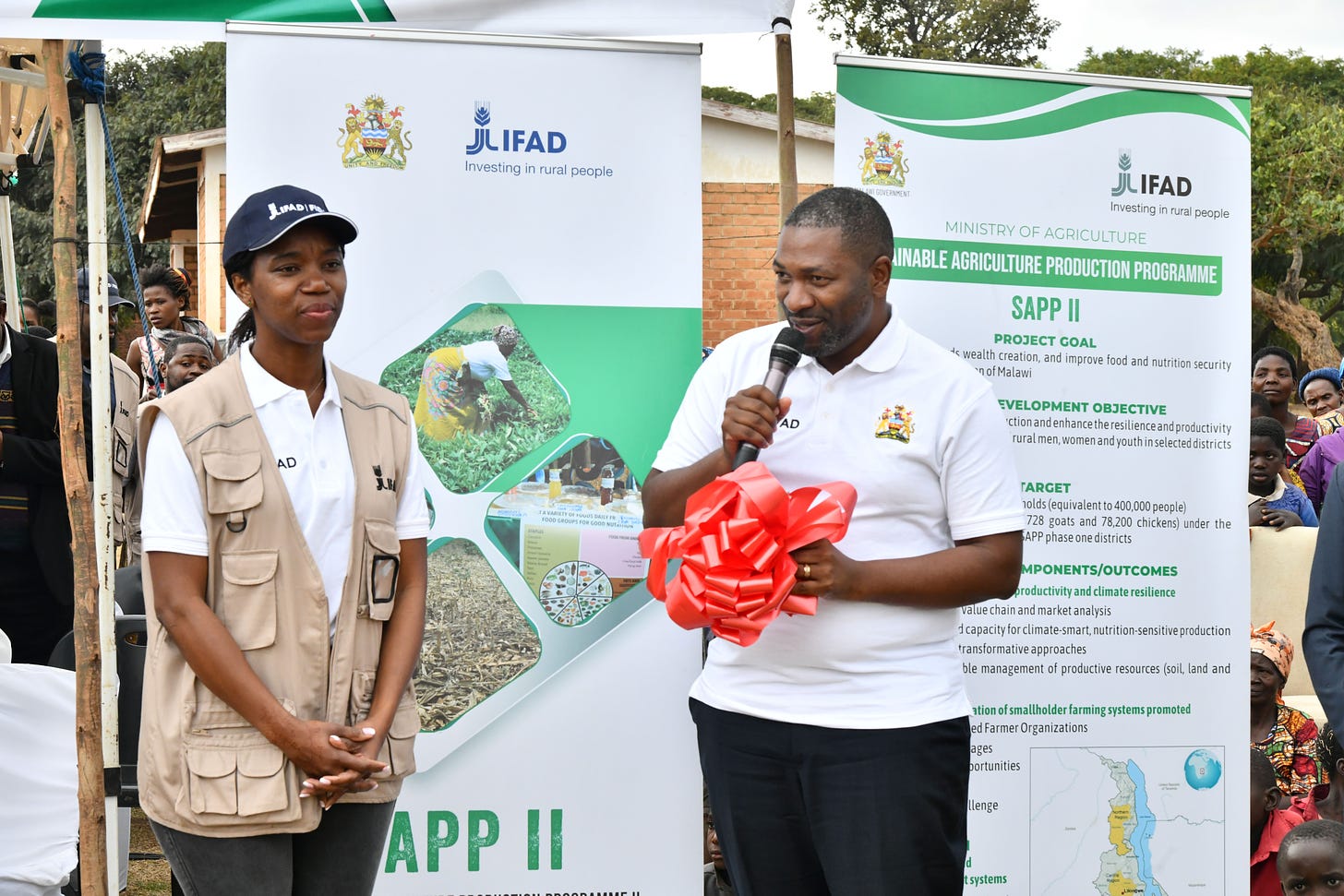Malawi Launches $53M Agriculture Program to Boost Commercialization
The program's launch underscores Malawi's commitment to agricultural development as a key driver of economic growth and poverty reduction in rural areas.
LILONGWE, Malawi— Malawi's government on Tuesday launched a $53 million agricultural program aimed at transforming smallholder farming and advancing the country's long-term development goals, writes Kondwani Magombo, MANA.
The Sustainable Agriculture Production Programme (SAPP II), funded by the International Fund for Agricultural Development (IFAD), will run for seven years and target 80,000 smallholder households in four districts: Dowa, Balaka, Lilongwe rural, and Mzimba.
Minister of Agriculture Sam Kawale, speaking at the launch in Malingunde, said the program aligns with Malawi's 2063 vision for agricultural transformation.
"SAPP II is targeting to commercialize those farmers that are just graduating from being subsistence," Kawale said. He added that the program will complement existing initiatives to create a more inclusive approach to agricultural commercialization.
The program aims to equip farmers with tools and knowledge to tackle food insecurity, boost wealth creation, and improve rural livelihoods.
It will focus on capacity building, facilitating partnerships between farmer organizations and the private sector, and improving access to finance.
IFAD Country Representative Bernadette Mukonyora emphasized the program's potential impact.
"The launch of SAPP II marks a significant step towards achieving Malawi's vision of becoming a wealthy, self-reliant and industrialized upper-middle-income country by 2063," Mukonyora said.
She noted that the program's predecessor, SAPP I, led to a 28% increase in crop production income for beneficiaries and significantly reduced food insecurity.
SAPP II is expected to build on these successes by strengthening farmer organizations, promoting market linkages and value addition, and establishing a Farmer Challenge Fund to support both farm and off-farm enterprises.
The program's launch underscores Malawi's commitment to agricultural development as a key driver of economic growth and poverty reduction in rural areas.



